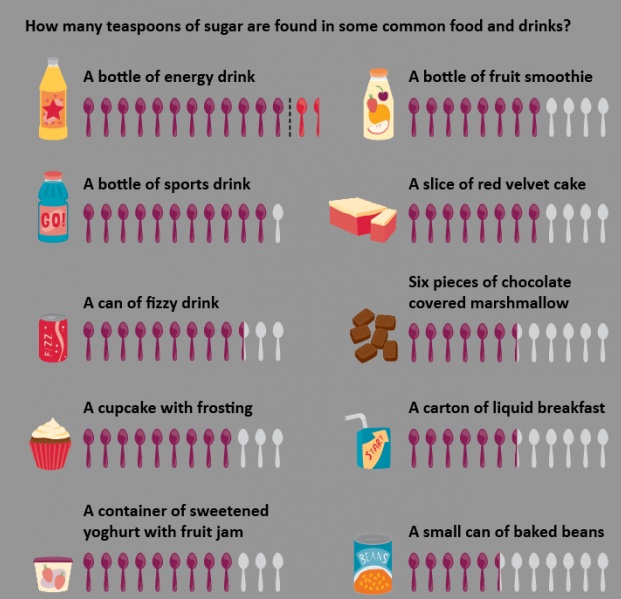Researchers have recommended the reduction of consumption of added sugars and limiting sugar-sweetened drinks in a new study.
The World Health Organisation had earlier suggested reducing consumption of added sugars to less than 10 per cent of total daily energy intake after previous research showed excessive sugar intake can have negative effects on health.

The new research review, published in The BMJ on Wednesday, recommends reducing consumption of added sugars to around six teaspoons a day and limiting sugar-sweetened drinks to less than one serving a week.
The study found significant harmful associations between sugar consumption and several outcomes, including asthma, diabetes, obesity, heart disease, depression and some cancers.
Researchers, including those from Sichuan University in China, conducted an “umbrella review” of previously analysed studies.
The latest analysis included 73 research reviews from 8,601 articles covering 83 health outcomes in adults and children.
Scientists assessed the methodological quality of these articles and graded the evidence for each outcome as high, moderate, low or very low quality to draw conclusions.
Researchers found significant harmful associations between sugar consumption and several outcomes, including asthma, diabetes, obesity, heart disease, depression and some cancers
Researchers found significant harmful associations between dietary sugar consumption and 18 metabolic outcomes, including diabetes, gout and obesity.
They also found harmful links between sugar consumption and 10 heart health outcomes, including high blood pressure, heart attack and stroke; as well as seven cancer outcomes, including breast, prostate and pancreatic cancer.
The analysis also found links to 10 other outcomes such as asthma, tooth decay, depression and death.
Sugar-sweetened beverage consumption was also significantly associated with increased body weight for highest versus lowest consumption.
Scientists also did not find any reliable evidence showing beneficial links between dietary sugar consumption and any health outcome.
Evidence for a link between dietary sugar consumption and cancer remains limited, they said, adding that this warrants further research.

The new findings, combined with WHO, World Cancer Research Fund and American Institute for Cancer Research guidance, suggested reducing the consumption of added sugars to below 25 g per day.
“Reducing the consumption of free sugars or added sugars to below 25 g/day (approximately 6 teaspoons/day) and limiting the consumption of sugar-sweetened beverages to less than one serving/week (approximately 200-355 mL/week) are recommended to reduce the adverse effect of sugars on health,” researchers wrote in the study.


